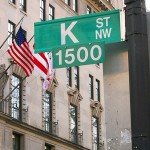This post has been read 2405 times!
Op-Ed January 20, 2011
As the new congress begins, led by the Republican Party in the House, the traditional GOP ranks are now ramping up the rhetoric opposing the recently enacted financial reforms (FinReg) that will threaten Wall Street[1] earnings. Those same groups opposed to Wall Street FinReg are also the ones who fear the most a creeping wave of socialism in The United States. Ironically, one could well argue that Wall Street has been the single biggest enabler of the socialist agenda throughout American history.
To review recent events, the new financial reform law passed last year is just a template. The Wall Street Journal wrote, “Now, the legislation hands off to 10 regulatory agencies the discretion to write hundreds of new rules governing finance. Rather than the bill itself, it will be this process—accompanied by a lobbying blitz from banks—that will determine the precise contours of this new landscape, how strict the new regulations will be and whether they succeed in their purpose. The decisions will be made by officials from new agencies, obscure agencies and, in some cases, agencies like the Federal Reserve that faced criticism in the run-up to the crisis… Republicans said the bill could jeopardize the recovery by constraining credit and crimping the banking industry, and chided the expansion of government power it envisions.”
Why might this GOP lobbying on behalf of Wall Street banks be helping the advance of socialism? To answer that, one needs to review and compare the two periods of American history in which socialism expanded significantly and recognize that they occurred after collapses in the stock markets caused by corrupt Wall Street practices.
After the stock market crash of 1929, President Hoover lost the election to Franklin Roosevelt who then inherited a long period of high unemployment and declining home prices in The Great (global) Depression. This created the political window of opportunity for his New Deal, Social Security, and the expansion of the Federal Government. The Great Crash was caused by many factors including an overleveraged mass of common investors in the stock markets, fraudulent foreign loans, insider trading, and mispricing of stocks by exchanges.
With eerie similarity to the Great Crash and Great Depression, the stock market crash of 2008 and subsequent global depression was caused by similar factors, such as overleveraged homeowners, many of whom were in fraudulent mortgages, combined with unregulated derivatives trading of mortgage-backed securities by too-big-to-fail Wall Street banks and traders. As with Roosevelt, the current depression led to the election of a new president promising radical change to ease the suffering of the common folk. So far, we have seen the biggest expansion in government spending in the history of the planet. Along with it, the progressive agenda was advanced with the ACA healthcare reform law, government takeover of corporations, and a nearly-trillion-dollar “Stimulus” package give-away to the states, etc.
Critics of this essay will assert that FinReg is mostly idealistic ineffective new burdensome regulation that will be quickly made obsolete by crafty Wall Street executives. That is likely correct, but aside from the point.
Make no mistake. FinReg is being opposed by lobbyists because it has already dampened earnings from the Wall Street banks. Goldman Sachs reported a 53% drop in Q4 earnings mostly due to lower trading revenue as the firm anticipated the “Volcker rule” of FinReg that ends proprietary trading.
The special interests have no concern for the well-being of the Nation and whether another financial crisis will usher in more expansion of government and social entitlements. They are short-sighted and paid based on near-term legislative results.
It is an undeniable fact that wealthy special interests, such as Wall Street, fund powerful lobbying efforts. The opposition to financial reform by those lobbyists and GOP has nothing to do with conservative values that allowed the Republicans to regain the House. Rather, it is a classic shameless special interest move that will ensure a future financial bubble, which will surely burst, and allow yet another moment of crisis to usher in more socialism, as the best case scenario. China might take over next time.
[1] “Wall Street” being defined as non-commercial banks, and executives of the banks who are traders of equities, fixed income, and derivatives employed by the banks and markets. Most hedge funds are not lumped in with our definition of Wall Street.

It seems apparent to anyone with half a brain that the wealthy will stop at nothing to achieve their goals. As an average middle class guy I just don’t see the logic in destroying the largest economy in the world that buys and invests in products and services the wealthy control. I guess I don’t have the ‘greed gene’ needed to understand this.